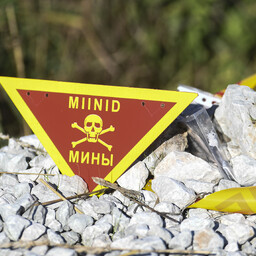The defense ministers of Estonia, Latvia, Lithuania, and Poland stated that they wish to withdraw from the Ottawa Convention. This convention bans the use of anti-personnel mines. They found that in the current security situation, our defense forces need much more flexibility. With this flexibility, the defense of NATO's eastern border can be strengthened. Their message is clear: our countries are ready to use all measures to protect their territory and people.
The defense ministers said that security has deteriorated since joining the Ottawa Convention. Due to the threat from Russia and Belarus, there is a greater military danger on our border. Currently, the threat from Russia to Europe and NATO is very significant. In this situation, it is crucial to take all steps to strengthen our defense and prevent Russian aggression.
Foreign Minister Margus Tsahkna said that Russia has not joined the Ottawa Convention. Therefore, we cannot ban ourselves from using anti-personnel mines if Russia is ready to use them. The defense ministers stated that in case of withdrawal from the Ottawa Convention, our country will remain committed to international humanitarian law. This means we will protect civilians during war.
Other countries are also discussing withdrawal from the Ottawa Convention. In Finland, over 50,000 signatures were collected in December to withdraw from the convention. The same topic is now going to be discussed in the Finnish parliament. The Ottawa Convention, or the treaty banning the use of anti-personnel mines, was made on December 3, 1997. It came into force on March 1, 1999. Estonia joined this treaty on October 1, 2004.
The purpose of the Ottawa Convention is to prevent the use of anti-personnel mines because they cause much suffering and casualties. Countries that join the convention must agree not to use or stockpile anti-personnel mines. They must also not force anyone to do so. This treaty can be read on the foreign ministry's website.

